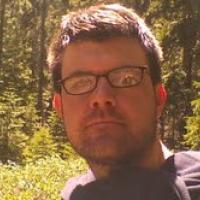
Robert Drury King is an assistant professor in the Department of Humanities and Social Sciences at Sierra Nevada College (NV, USA) and a research fellow with the Centre Leo Apostel at the Free University of Brussels. Robert earned his B.A. in English Literature at the University of Florida and his M.A. in Literature, Theory, and Cultural Studies at Purdue University. He went on to complete his Ph.D. at Purdue University within their dual Ph.D. degree program in Literature and Philosophy. His doctoral dissertation, “System Individuation in Differential and Dialectical Ontology: Deleuze, Hegel, and Systematic Thought,” received the 2011 College of Liberal Arts Distinguished Dissertation Award. Robert has published chapters and essays in a variety of books and journals and is currently preparing a co-edited volume of essays entitled, Main Traditions of Systems Theory: Figures and Developments, which is forthcoming with Routledge. Robert has studied in the School of Criticism and Theory at Cornell University; at the Collegium Phaenomenologicum in Città di Castello, Italy; within the Unseld Lecture Series at the University of Tübingen, Germany; as a visiting fellow of the World Congress Summer School in Glasgow, Scotland, with the Association for Social Economics; as a visiting scholar under the National Endowment for the Humanities’ 2012 Summer Institute in Experimental Philosophy at the University of Arizona; and in the National Humanities Center’s Summer Institutes in Literary Studies at Research Triangle Park, North Carolina, in the seminar, “Form and Politics in the Work of J.M. Coetzee.” My research inquires into the construction and emergence of systems (economic, social, political, physical and biological). In particular, I take a look at the conditions by which structured forms of energy, matter, and information flow through social systems (with particular interest in the flow-dynamics1 of the system of capital). This approach demands specifying the structural make-up of the system of capital as well as the relations that this system maintains with other, pertinent systems (human, economic, political). I use insights from the tradition of classical political economy and contemporary theories of civilizational collapse to view social systems as forms of social metabolic reproduction. By social metabolic reproduction, I refer to the processes through which societies direct inputs and outputs of energy, matter, and information toward the maintenance of the structurally necessary components required for their continual reproduction. The purpose of this type of research is to identify the structural crises of world historical systems (capital, feudal, agricultural, hunter-gatherer) in virtue of their reproductive strategies. My strongest interest in this framework is to analyze the system of capital with respect to the structural and environmental problems it generates. I thus treat it as a dissipative system (located in the core of the world-system, to borrow language from world-systems theory) that must funnel entropy into the periphery (through political channels or environmental resources) in order to reproduce itself. I ask, how does this work, is this strategy doomed for failure, how might such dynamics be reconfigured?
